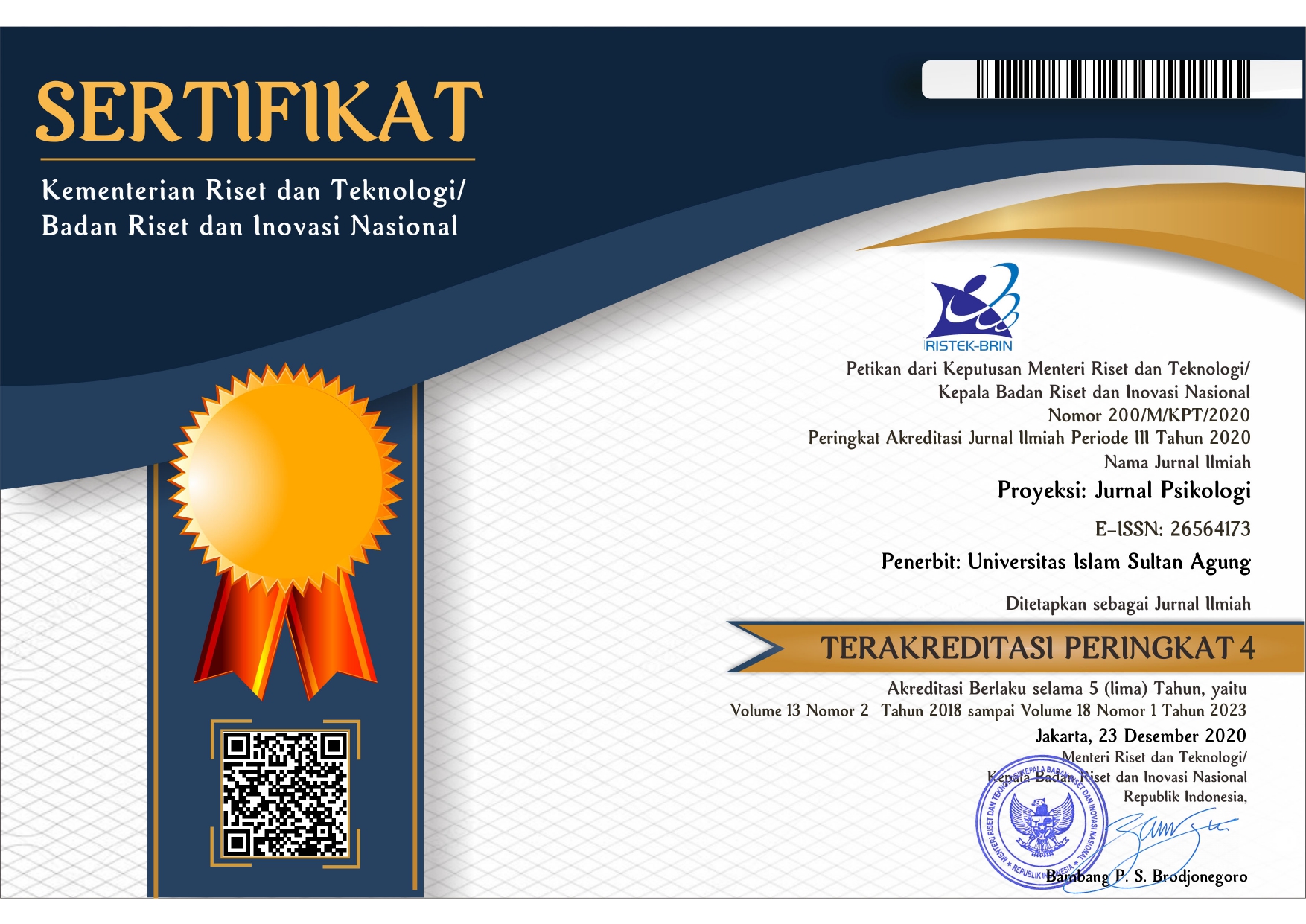ETHICAL LEADERSHIP DAN KOMITMEN ORGANISASI SEBAGAI PREDIKTOR INTENSI TURNOVER KARYAWAN
Abstract
The purpose of this study was to determine the relationship between Ethical Leadership and organizational commitment to employee turnover intention. Turnover intention is a desire to stop or get out of his work and wish to change jobs. The subjects used in the study were 150 employees. The method used for sampling uses a purposive sampling technique. The scale used at the time of this research was the turnover intention scale with reliability 0.796, Ethical Leadership scale with reliability 0.879, and organizational commitment scale with reliability 0.802. Data analysis used in this study is regression analysis with two predictors and partial correlation. The first hypothesis test results obtained a score of F = 26.217, R = 0.613, and p = 0.000 (p <0.05). Thus it can be seen that there is a relationship between Ethical Leadership and organizational commitment to employee turnover intensity. The second hypothesis obtained rx1y = 0.274 and a significance of 0.009 (p <0.05). These results prove that there is a positive relationship between Ethical Leadership and turnover intensity. The third hypothesis obtained the results of rx2y = -0.612 with a significance of 0,000 (p <0.05). The results explained prove that there is a negative relationship between organizational commitment and turnover intention.
Keywords
Full Text:
PDFReferences
Alsa, A. (2001). Kontroversi uji asumsi dalam statistik parametrik. Buletin Psikologi, 1(1), 18-22.
Booth, S., & Hamer, K. (2007). Labour turnover in the retail industry: Predicting the role of individual, organisational and environmental factors. International Journal of Retail and Distribution Management, 35(4), 289–307. https://doi.org/10.1108/09590550710736210
Hasan, H. A. (2013). Promoting organizational citizenship behavior among employees - the role of leadership practices. International Journal of Business and Management, 8(6). https://doi.org/10.5539/ijbm.v8n6p47
Herawati, J., & Prayekti, P. (2017). Pengaruh kepemimpinan etis dan komitmen organisasional terhadap kinerja karyawan koperasi batik di jogjakarta. SOSIOHUMANIORA: Jurnal Ilmiah Ilmu Sosial Dan Humaniora, 1(1). https://doi.org/10.30738/sosio.v1i1.516
Meyer, J. P., & Allen, N. J. (1984). Testing the “side-bet theory†of organizational commitment: Some methodological considerations. Journal of Applied Psychology, 69(3), 372–378. https://doi.org/10.1037/0021-9010.69.3.372
Puspasari, O., & Nugraheni, R. (2016). ( Studi Pada Perusahaan X ). 5, 1–8.
Sidharta, N., & Meily Margaretha. (2011). Dampak komitmen organisasi dan kepuasan kerja terhadap turnover intention : Studi empiris pada karyawan bagian operator di salah satu perusahaan garment. Jurnal Manajemen, 10(2), 129–142.
Sutanto, E. M., & Gunawan, C. (2015). Kepuasan kerja, komitmen organisasional dan turnover intentions. Ekonomi Dan Manajemen Bisnis, 4(1), 271. http://repository.petra.ac.id/id/eprint/16051
DOI: http://dx.doi.org/10.30659/jp.15.1.1-11
Refbacks
- There are currently no refbacks.

Proyeksi by http://jurnal.unissula.ac.id/index.php/proyeksi/ is licensed under a Creative Commons Attribution-ShareAlike 4.0 International License.

